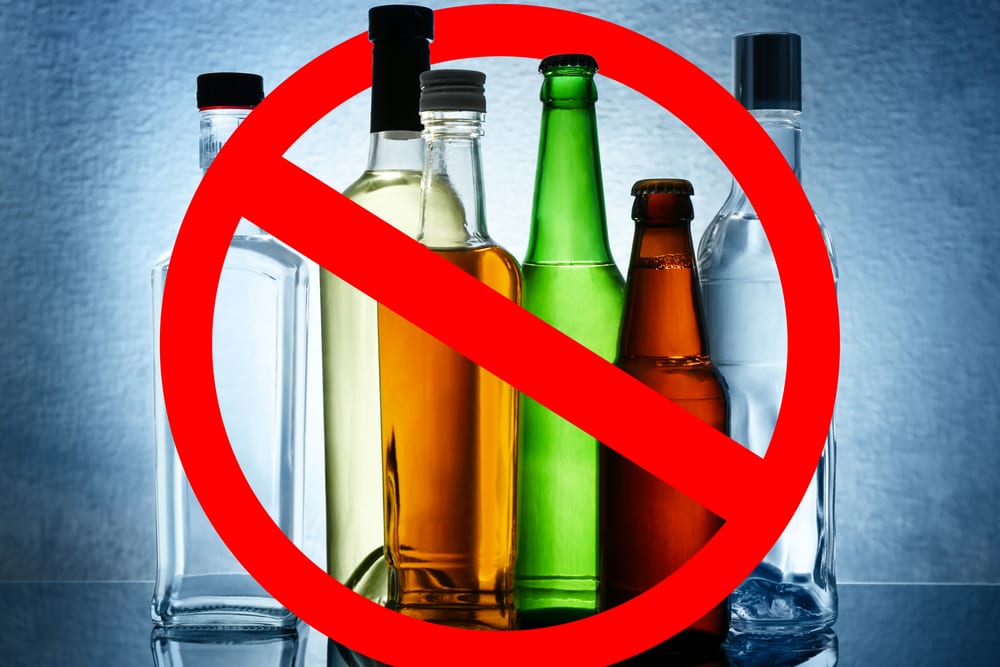There are many things in the country that are illegal, some for good and some for not-so-good reasons. But the question is, does alcohol deserve to be on that list of illegal things? Will that solve the problems of alcohol and prevent what some see as the unnecessary death of so many, or will it just exacerbate the current issues and bring unregulated drinking to the underground?
Especially when you think about how prevalent drinking is in our everyday society, the first thing many people do when they get off work is go to the local bar and grab a drink; it’s the natural pass time for many people. So how are you going to look at a country of people, or can you look at a country of people and say, “The very thing you all have become accustomed to on your day-to-day is now illegal,” will that go over well, or will it lead to disaster?
Below we will discuss the pros and cons of making alcohol illegal and see if this is more of a fantasy or a concept that holds weight.
Table of Contents
TogglePros and cons of making alcohol illegal
Alcohol was illegal in America during the 1920s, but society was fundamentally different than today. Here we will discuss the pros and cons of making alcohol illegal from a modern perspective.
Pros
1. Societal improvement
Issues arise when people drink alcohol. People drink and drive, get into violent altercations, and domestic abuse often involves either party consuming alcohol. Without alcohol, some of these issues will decline, as making something illegal will cause a specific part of the country to avoid the substance.
Violent encounters and driving instances will decrease if the leading cause of these issues is no longer readily available. It will also cause people to have better habits. Some people get late to work and lose their jobs after a night of drinking or get kicked out of their homes, so it can help them remain responsible.
2. Less death
There are 140,000 deaths caused annually by drinking. There are also countless deaths caused not simply by alcohol but it plays a part in someone’s death. Some people would develop illnesses and diseases later in life, even if they gave up drinking a long time ago. So with alcohol no longer on the market, these deaths will no longer occur yearly, and these diseases and illnesses will become less prevalent.
3. The federal government will have more money to apply to other issues
Although drugs will remain an issue in this country, the federal government puts money every year into rehab facilities, alcohol prevention, or outreach programs. With alcohol now illegal, fewer people will abuse the substance and, thus, fewer people requiring treatment. Some of these outreach programs no longer need to exist, meaning the government can spread the money to other programs.
4. Personal financial benefits
Drinking alcohol is an expensive habit to have. Some people are oblivious to how much they spend buying a drink every day, and this money adds up. Not to mention the people who have an addiction but still can function well in society. They continue to make money, but they spend it on alcohol daily. Without alcohol on the market, people will have less expense and can better prioritize their money.
Cons
1. The rise of an underground market
Making something illegal does not mean people will stop using the product or desiring it. Cannabis was and technically is illegal on a federal level, but people still use the substance. If alcohol were illegal, this would only push it underground and cause the people who have an itch they can not get rid of to seek it out in this underground manner which may not be the best for them.
2 . Underground alcohol trade
To create these underground markets, a supplier is required. So groups or individuals will rise to meet the demand of the people. This rise in criminals, in return, could lead to turf wars, the re-emergence of organized crime, and government resources poured into this trade. Then with this trade on the rise, the prison population will increase because not only do you have criminals importing the product, but you also have people, as mentioned in the first con, still drinking the now illegal substance. So more people will go to jail due to this alcohol trade.
3. The collapse of certain local economies
What is a club without alcohol? What is a beach resort if you can not have mimosas on the beach? In many economies throughout the country, they rely on the tax revenue from hotels, resorts, and bars, which in return rely on alcohol sales. If clubs, hotels, and resorts can not sell alcohol, people will not come to these areas. With these clubs, hotels, etc., being the only thing bringing money to these communities, it could cause the local communities’ economy to collapse, proving devastating for the people who take up permanent residence in the community.
4. Lack of built communities and bonds
You can agree that overdrinking is a problem for some people. But for those who are able to go to a bar or club, drinking is an icebreaker, a means of building a community. After work, the common question to ask a coworker is, “Do you want to go grab a drink.” Going to grab that one or two drinks and then spur a conversation creates friendships and communities. Without those communities, people could feel more isolated and alone, and in addition, alcohol can act as a stress relief. Without this relief, it could drive people to more harmful activities.

I am a passionate beer connoisseur with a deep appreciation for the art and science of brewing. With years of experience tasting and evaluating various beers, I love to share my opinions and insights with others and I am always eager to engage in lively discussions about my favorite beverage.
















